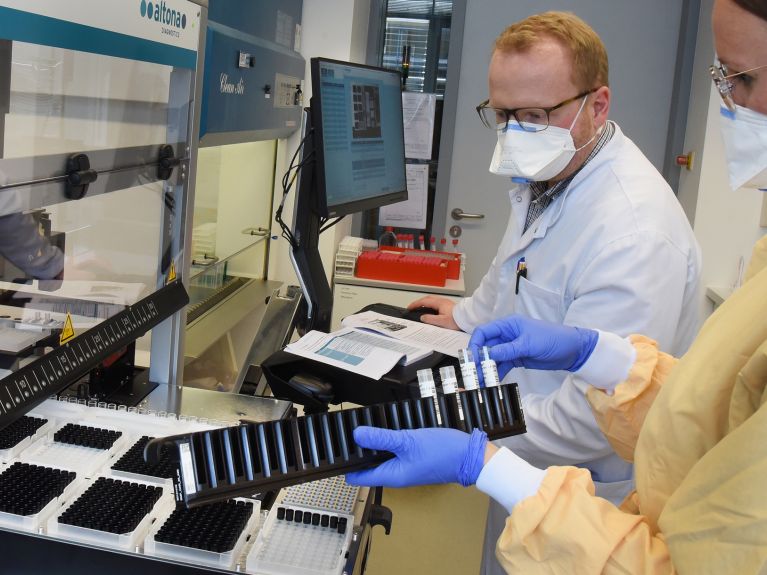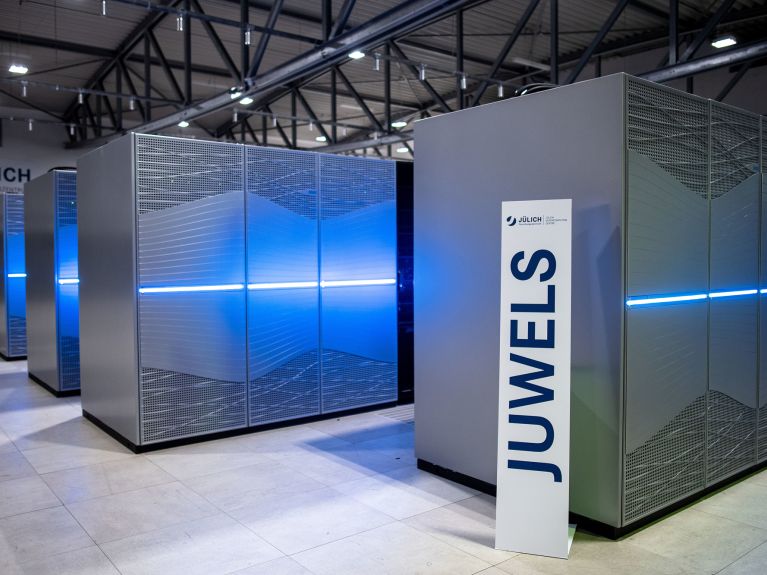Joint effort against the coronavirus
With strong German participation, European researchers are working to tackle the coronavirus pandemic – with initial success.

When you think of research related to the coronavirus, you probably think of vaccines first. But there is much more to it: for the time of the German Presidency, the EU has identified twelve relevant research areas in which to tackle the pandemic, including diagnostics, treatment, equipment, infrastructure, society and the economy. The European Commission is investing a billion euros in projects in these fields – because a disease that knows no national borders requires border-crossing research.
Many German institutions are taking part
German institutions are participating in many of these research collaborations. One example is RECoVER. Researchers from seven countries are working on the project, including the Charité - Universitätsmedizin Berlin and the Universities of Amsterdam and Oxford. The goal is to better understand the pandemic and to strengthen patient care and public health. For example, clinical researchers, epidemiologists, virologists, social scientists and laboratory technicians want to find out how the virus causes the disease, how it is transmitted, how it develops as it spreads in Europe, and how it could spread through various measures such as quarantine and isolation.

Supercomputers help with simulations
Rapid drug development can save many people's lives. In the EXSCALATE4CoV project, researchers want to use Europe's most powerful computer resources to enable intelligent in-silico drug design. With the supercomputers, drugs under development are simulated and evaluated, and the results are more promising. Such simulations, which are based on large amounts of data, accelerate the time needed for the discovery of new active substances. One of the three fastest computers in Europe, which will be used in the project, is at the Research Centre in Jülich in North Rhine-Westphalia, one of the largest research institutions in Europe. The Fraunhofer Institute for Molecular Biology and Applied Ecology (IME) in Aachen is another partner. EXSCALATE4CoV is coordinated by the Italian pharmaceutical company Dompe in Milan.
Coordination at the Helmholtz Zentrum München
The Helmholtz Zentrum München - German Research Centre for Health and the Environment coordinates the RiPCoN project. It uses artificial intelligence to identify drugs that are already approved for other diseases which could also be suitable for the treatment of COVID-19. Researchers analyse the interactions between viral and human proteins to understand how the viruses change the host networks and what influence genetic variants have on humans and viruses. The Helmholtz Centre is partnered with the French Institute National de la Santé et de la Recherche Médicale and the Fundacio Institut de Recerca Biomèdica in Barcelona.
In total, more than 150 pandemic control organizations are at work in Europe. A number of the projects are already delivering positive results. For example, a spokesman for the Exscalate4CoV project announced that the generic drug raloxifene, used for the treatment of osteoporosis, may be suitable for the effective treatment of COVID-19 positive patients with a mild or asymptomatic infection.
You would like to receive regular information about Germany? Subscribe here: